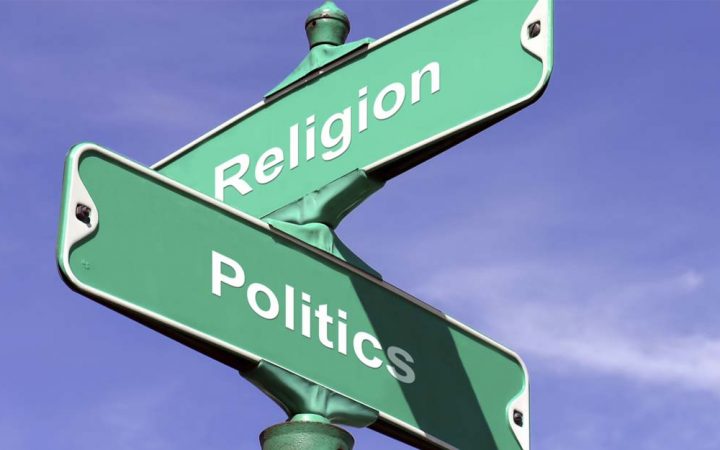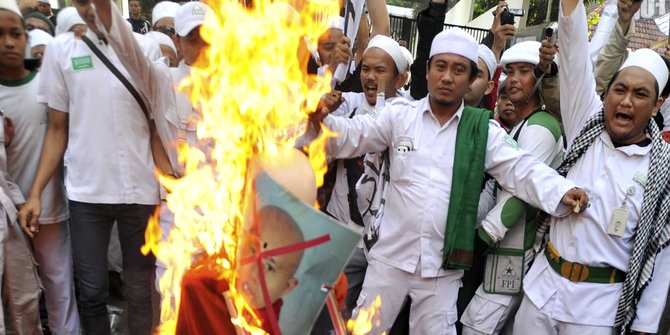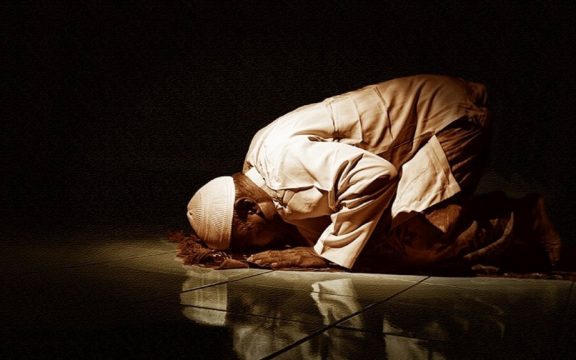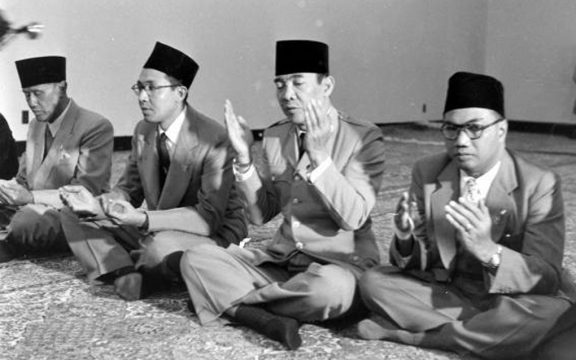Is it possible to separate religion and politics? Throughout history, many people tried to separate religion and politics, but doesn’t seem to succeed. What people can do is just separating religious authority and state authority. This is what we call secularism. There is a whole range of secularism pattern; society-based secularism such as in the United States and originates from the design of the state as in Mustafa Kemal’s Turkey.
But secularism has never really won the battle. In fact, people continue to find new ways to connect religion and state. Religion was unsuccessfully pushed to the private sphere as desired by the secularists. Sociologist Jose Casanova (2001) pointed out that deprivatization of religion is growing in recent years as a new global trend where religion plays an important role in public space. Religion, said Casanova, is clearly becoming deprivatized rather than privatized.
Then why is difficult to separate religion from state? Let’s have a look on how these two work in the realm of individuals.
The main reason of close relation between religion and state is quite simple: Both are twin brothers. Both are born from human efforts to organize themselves based on beliefs that originally worked in the realm of individuals. Because individual beliefs are formed together, have the same nuance, people then group together, in order to make them as collective beliefs which produce authorities. Both often work together against individual. Therefore, most individuals are bound to both structures.
According to Harari in his famous book, Sapiens, he states that human gradually group using two tools; gossip and fiction. Some thinkers have long discussed similar theory in their work, under slightly different in terms and styles. But let me borrow Harari’s way in this article.
Harari said that in the initial stages, the ability of humans in groups was strongly supported by the development of language. The use of language allows humans to discuss about the reality around. Language makes humans gossip. This gossiping capacity is what gives humans the ability to build groups in a limited number, a maximum of around 150 people.
But the gossip cannot bind humans more than 150 people. Humans need something stronger than discussion about surroundings, so they can be grouped in larger sizes. When gossip is no longer able to bind humans in an increasingly large size, there is something else, namely fiction – something that is present in the human mind, without having to be proven empirically. The presence of this collective imagination unites humans on a scale far greater than gossip.
With collective imagination, humans are set to believe in something in common. Including those of gods and ideological visions. It is with this fiction that humans can be creative in building religious structures that are getting bigger and bigger, or building a modern state with tens or hundreds of millions of people in it, or even dreaming of a global-scale country as practiced by people like Alexander the Great, Adolf Hitler, and Islamic state activists.
Religion and politics work in the same space in a human being, that is, an imagination of something ideal and eternal. That’s why religion and politics cannot be separated forever, and let them be.
Translated from an article published in Islami.co, under title Mengapa Agama dan Politik Tidak Bisa Dipisahkan by Abdul Gaffar Karim https://islami.co/mengapa-agama-dan-politik-tidak-bisa-dipisahkan/
![Islami[dot]co](https://en.islami.co/wp-content/themes/jambualas/images/logo.png)




